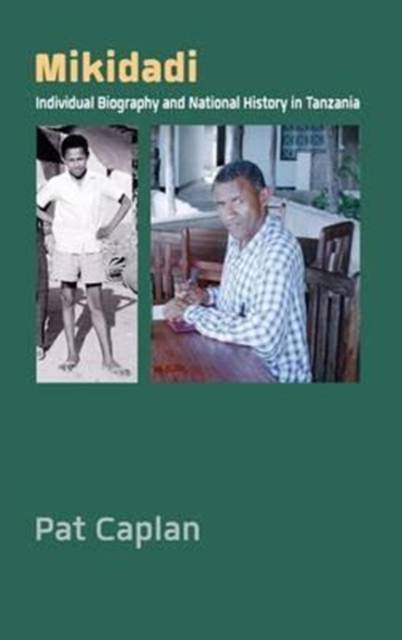
- Afhalen na 1 uur in een winkel met voorraad
- Gratis thuislevering in België vanaf € 30
- Ruim aanbod met 7 miljoen producten
- Afhalen na 1 uur in een winkel met voorraad
- Gratis thuislevering in België vanaf € 30
- Ruim aanbod met 7 miljoen producten
Omschrijving
This is the extraordinary story of Mikidadi, an ordinary Tanzanian from a remote coastal island, who became a Koran-school teacher, charity leader, environmental activist and guardian of an extended family. But this biography is not only about Mikidadi's life and legacy, but also his times. He lived through transitions from colonialism to independence, socialism to neoliberalism, a single- to a multi-party state, and a local Swahili Islam to a more globalized and politicized form. He also experienced the growth of corruption, and the increasing role of Western NGOs and Islamic charities. In considering how wider historical processes impacted on Mikidadi, as life got progressively harder for his family, this book seeks to counter some of the recent rewriting of Tanzania's post-colonial history.
Skilfully moving through the decades, between events at national, regional and individual levels, between three generations, and even adding a further layer of her own life as an anthropologist, Caplan succeeds in writing an engaging, accessible account that will appeal to both academics and students. For at the centre of this book is an unlikely friendship that began in 1966 between a 12-year-old boy and a 23-year-old woman, and lasted nearly four decades, to be cut short by Mikidadi's untimely death in 2002. Recollections of meetings, and extracts from fieldwork notes and correspondence, bring a lively immediacy to this exchange, in which profound cultural differences between researcher and researched are transcended in interconnected lives.
"This clear and well-written book celebrates a life and its place in history. It is an exemplar of public anthropology." - David Zeitlyn, Professor of Social Anthropology, University of Oxford.
'An unprecedented ethnographic analysis of contemporary Tanzanian history exploring how individuals, families and communities over time perceive, act, negotiate and strive to adjust in the shade of shifting political, economic and ideological conditions.' - Kjersti Larsen, Professor, Museum of Cultural History, University of Oslo
'Clear, engaging, and insightful, this accessible biography provides a rich entry point into African history and anthropology through an intimate account of life in a coastal East African village.' - Christine J. Walley, Professor of Anthropology, Director of Graduate Studies, Massachusetts Institute of Technology
'A model of participatory and ethical research, Mikidadi is an invaluable resource for scholars, students, development practitioners, and environment activists.' - Marjorie Mbilinyi, Professor, University of Dar es Salaam (1968-2003); Principal Policy Analyst, Tanzania Gender Networking Programme (2004-14)
Specificaties
Betrokkenen
- Auteur(s):
- Uitgeverij:
Inhoud
- Aantal bladzijden:
- 200
- Taal:
- Engels
Eigenschappen
- Productcode (EAN):
- 9781907774485
- Verschijningsdatum:
- 30/11/2016
- Uitvoering:
- Hardcover
- Formaat:
- Genaaid
- Afmetingen:
- 156 mm x 234 mm
- Gewicht:
- 458 g

Alleen bij Standaard Boekhandel
Beoordelingen
We publiceren alleen reviews die voldoen aan de voorwaarden voor reviews. Bekijk onze voorwaarden voor reviews.









